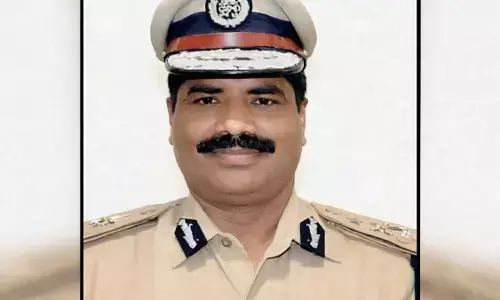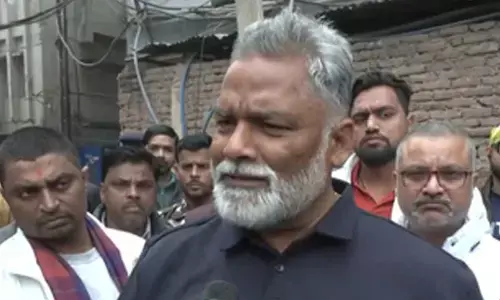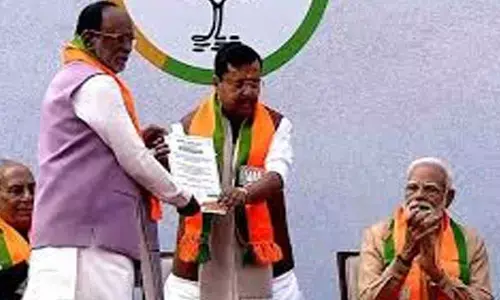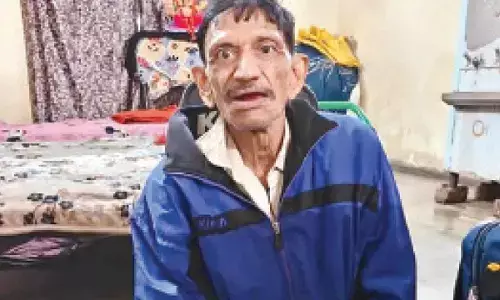Power cuts paralyse essential services

Power cuts paralyse essential services. Kuldeep and his wife are central government employees and both are beneficiaries of the Central Government Health Scheme (CGHS).
 Kuldeep and his wife are central government employees and both are beneficiaries of the Central Government Health Scheme (CGHS). They visited the Begumpet CGHS last week at 11am and informed their offices that they would return in a couple of hours. But they couldn’t get back to work and returned home at dusk.
Kuldeep and his wife are central government employees and both are beneficiaries of the Central Government Health Scheme (CGHS). They visited the Begumpet CGHS last week at 11am and informed their offices that they would return in a couple of hours. But they couldn’t get back to work and returned home at dusk.
Thanks to the unscheduled power cuts, the couple had to sit in the dispensary bearing the heat and without consuming food and water.
“We were told there is a provision for generators in the dispensary as this is an essential service. We are government employees. But is there anybody to hear our voice,” questioned the couple.
“While multi-speciality hospitals rally with the problem of power backup, smaller hospitals and nursing homes bear the brunt of power cuts. More than the duration of power cuts, it is the unscheduled time slots that wreak havoc, making it difficult to plan surgeries and procedures. High-tech equipment are ruined due to power fluctuations,” say employees of hospitals who receive CGHS beneficiaries.
There are more than 80,000 beneficiaries of the medical facility of the CGHS which include pensioners, ex-MPs, freedom fighters and government servants from other categories.
Arandam, a beneficiary, says, “The government has made some changes wherein CGHS beneficiaries shall be allowed check-ups at private hospitals, diagnostic laboratories, imaging centers, empanelled under the CGHS. But now private institutions too have stopped their services due to a dispute and we have to bear the brunt .”
Ashok, 55, who is a member of Permanent Lok Adalat, Nampally Court, says, “Dispensaries of CGHS are not provided with generators in the city even where there are unscheduled power cuts. The aged and the helpless are being put through so many hardships.”
Major Shanaz, another beneficiary, questions, “When the government is spending more than Rs 20,000 crore on public health, why is it not spending on simple generators when it is the need of the hour?”
A chief medical officer, on the condition of anonymity, says, “We are sending back most patients when there are power cuts and are asking them to come after two or three days. How can medical facilities and benefits wait? There are many beneficiaries who have permanently disabled dependants who are put through hardships. We have been writing to our officers to allocate budget for generators and diesel.”
e-Seva centres puts customers through hardships
The CGHS is not the only government institution in the city to be crippled by power cuts. Even e-Seva centres face similar hardships. At the Chikkadpally e-Seva centre, Sarla, Mithila, Shekar, Anupamma and other employees are seen chatting over their phones at 3pm while a row of impatient customers are sitting on their chairs to pay their bills. They were made to wait as there was no power and the centre didn’t have any generators.
Shastry, one of the customers, said, “I had to apply for leave for half a day to pay my bills. If I can’t pay the bills today due to power cuts, I will have to come again tomorrow resulting in loss of pay.”
“The daily income of any e-Seva centre ranges from Rs 10 to Rs 15 lakh. Why can’t they have a generator and give better facilities,” questioned Sachadev Agarwal, a businessman.
When questioned about the problems, a senior IAS officer, said, “Because of the Model Code of Conduct (MCoC), we can’t do anything. Once the new government is elected to power, the first demand of providing better infrastructure would be made.”
Next Story










